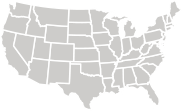Partnerships
Clean Cities and Communities' builds collaborations at the local, regional, state and national levels. These collective efforts significantly increase the availability of alternative fuels, electric vehicles, and related infrastructure, thereby enabling a growing number of fleets and other stakeholders to choose alternative fuel vehicles (AFVs). These efforts frequently include coalitions as partners and often leverage additional resources from private and public sector partners to help communities lay the foundation for hundreds of alternative fuels and vehicle projects.
Local Efforts
At the local and regional level, Clean Cities and Communities coalitions build partnerships and develop projects with stakeholders in communities across the country.

Coalitions
More than 75 coalitions form the core of Clean Cities and Communities and serve as local champions to implement alternative fuels, electric vehicles, and advanced vehicle technologies in urban, suburban, and rural communities across the country.
Funded Projects
The U.S. Department of Energy has funded hundreds of projects that lay the foundation for communities to implement alternative fuels, electric vehicles, and energy-saving strategies.
National Efforts
At the national level, Clean Cities and Communities collaborates with federal agencies, fuel providers, industry associations, equipment manufacturers, large companies, and vehicle fleets.

National Clean Fleets Partnership
Clean Cities and Communities works with large private-sector fleets that operate in multiple states to implement transportation projects. The initiative provides fleets with resources, expertise, and technical support to evaluate incorporating alternative fuels and fuel-saving technologies and strategies into their operations.
National Parks Initiative
Clean Cities and Communities partners with the National Park Service to support the use of renewable and alternative fuels, electric drive vehicles, and other advanced transportation technologies at national parks across the country. These efforts help improve air quality and promote the use of domestic energy resources.